
10 Feminist Books to Help Dismantle the Patriarchy
This content contains affiliate links. When you buy through these links, we may earn an affiliate commission.
I am happy to be living in a world with so much beautiful writing about how we can make the world a better place. There are lots of big problems to tackle, but thankfully, we’ve got some great minds on the case. If you are looking for further feminist reading on dismantling the patriarchy, or are just getting your start, there is something here for everyone. Now get out there and fight the good fight.
This book, though written in 1963, remains quintessential feminist reading. Is it a bit dated? Yes. But not as much as you’d think. Frankly, reading this, I was shocked at how much of what Friedan was talking about is still very relevant to the modern world. She breaks down the rather sudden and confusing left turn the women’s movement took post-WWII. In previous decades we were seeing a lot of positive movement, gaining the right to vote, women joining the workforce in droves, and then the 1950s hit and everything shifted. Friedan called it the “The Problem that Has No Name” because women of the era were basically gaslit into thinking that the oppression they were experiencing was a gift. They didn’t even have the words to discuss what was happening. This book started that conversation.
This short, brilliant essay provides a great and inspiring primer into modern, intersectional feminism around the world. Through discussing her own experiences in the U.S. and in her home, Nigeria, she paints a picture of cultural discrimination and institutional marginalization that shapes the everyday lives of women. It is at times humorous and heart-wrenching, and provides a much-needed world view of feminism.
This collection of essays grapples with a wide range of issues affecting women in the Trump era. With essays on topics from grappling with the loss of hope around having a female president, to reproductive rights, to how feminism intersects with the transgender community, to being queer and black in rural America, this book provides a broad and varied vision of what it means to be a woman in 2019. There is a nice arc to how the essays are arranged, and even has some ideas on how we move forward to create a better world.
If you need a bit of comedy after all of these heavy books, this book is perfect. Roberson’s glib voice is in turns scathing and self-deprecating. This book isn’t really about hating men. It’s more about how to date as a straight cis woman in a world where men hold most of the power and yet are often completely unaware of how much power they hold over women. It’s complicated trying to navigate in such a society and build and find love based on equality. Especially when most women are raised with the idea that male validation is a requirement to be considered successful.
Roxane Gay’s heart-wrenching memoir about her body is not a directly feminist text but is so important in continuing the conversation of how we view beauty. She talks extensively about the struggle with her weight over the years, her family’s continuous comments, the meanness she’s experienced at the hands of society, and myriad other issues that relate to having an unruly body in a society that wants women to be controlled. Her writing is beautiful, and there is no semblance of preaching in her tone whatsoever. She walks you through her painful experiences, which began with a horrific sexual assault when she was a child, and asks the readers to think about what this means for society as a whole.
Men Explain Things to Me is a slim collection of essays that tackles many issues, but does a great job of bringing to light the microaggressions that women face every day. Is mansplaining a traumatic experience? No, probably not, but it is really fucking annoying. And breaking down the small ways that women are oppressed every day is how we begin to dismantle the larger system of oppression. The first essay is particularly strong and will make you laugh in a dear-god-you’ve-got-to-be-kidding-me kind of way. Women have been silenced for centuries and this book of essays draws a throughline from simple mansplaining to the type of silencing that leads to real harm.
Love as activism. Love as an all-powerful and healing force. hooks will completely win you over to this way of thinking. There is space for a wide range of feelings when dealing with the patriarchy—anger, pain, sadness—but this is one of those books that will blow open your mind to a different way of thinking. In her famously beautiful way, hooks shows how love can heal the wounds that we have on an individual level, and then scales that up to healing the whole nation. Compassion and love build community, and in community, we can reimagine what our society truly looks like.



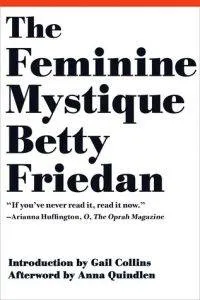 The Feminine Mystique
The Feminine Mystique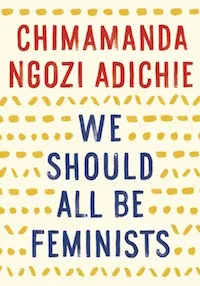 We Should All Be Feminists
We Should All Be Feminists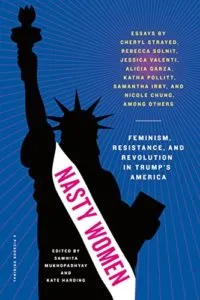 Nasty Women: Feminism, Resistance, and Revolution in Trump’s America
Nasty Women: Feminism, Resistance, and Revolution in Trump’s America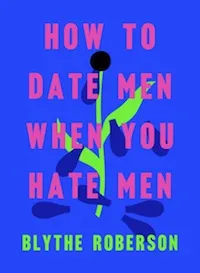 How to Date Men When You Hate Men
How to Date Men When You Hate Men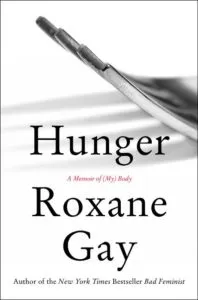 Hunger
Hunger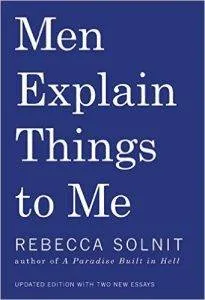 Men Explain Things to Me
Men Explain Things to Me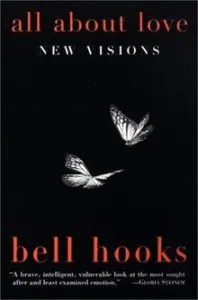 All About Love: New Visions
All About Love: New Visions





